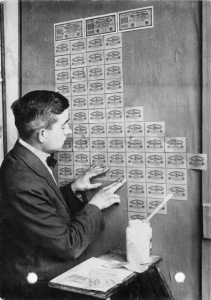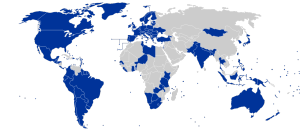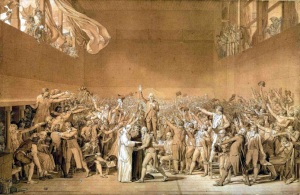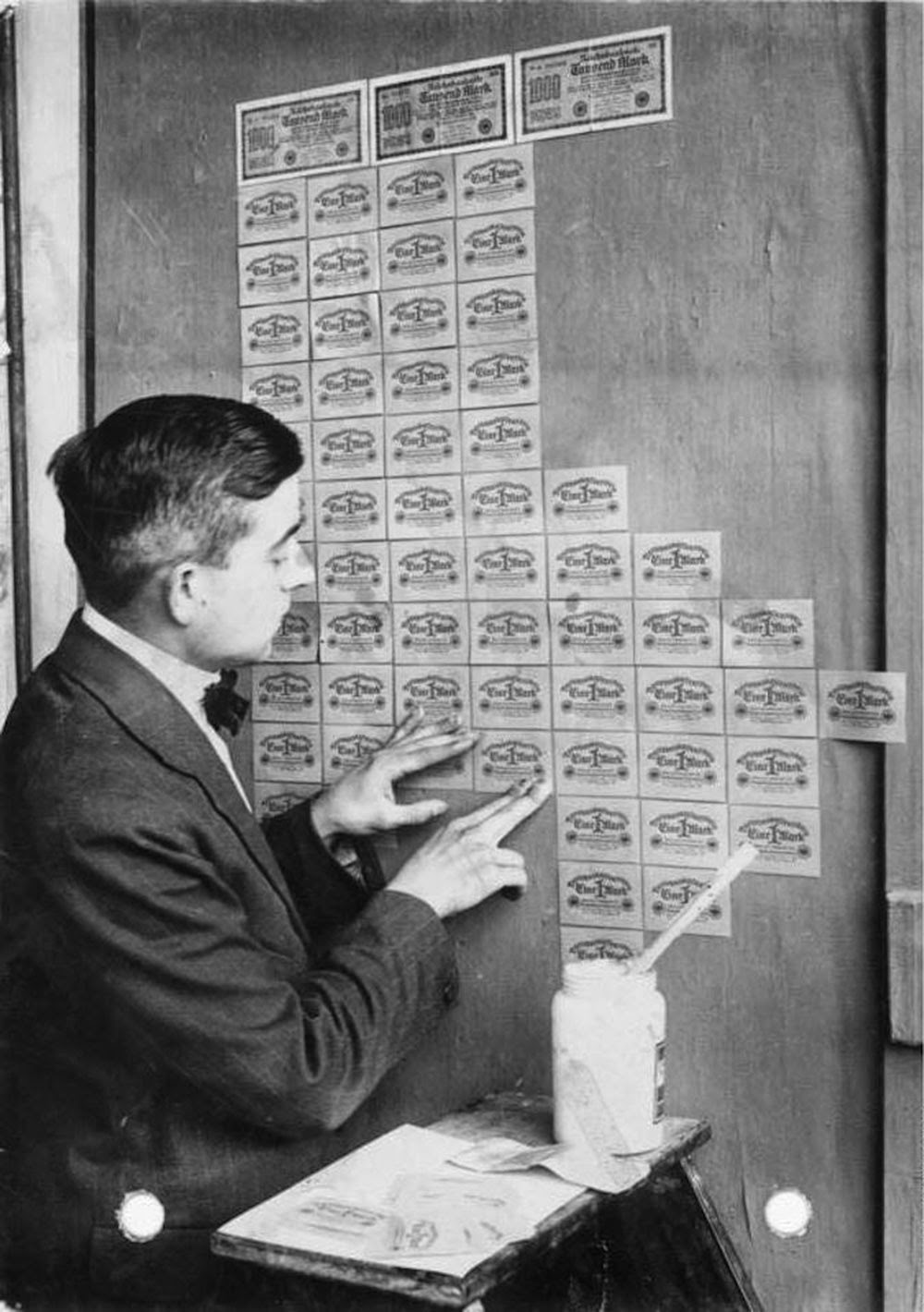The stock market for political terms is about to crash due to over-usage and inflation.
By Calin Marginean
In economics, the term inflation is used to describe the loss of the value of a currency when it is found in excessive quantities in the market. Throughout history there have been cases of severe inflation and even hyperinflation, such as in Germany after World War I where people started using banknotes as wall-paper.
Hyperinflation: when multi-millionaires die of starvation and toilet paper is more valuable than money. See Zimbabwe and the Weimar Republic.
Although used in the field of economics, the term inflation can be applied to describe what is happening in the world of politics with certain terms who have not only lost much of their value but as a result are also losing their meaning. The most striking of all is the term “democracy”, a term is associated with equality, popular sovereignty, liberty of opinion and various other things… at least this is how it should be. In fact, in today’s world all but four recognized countries of the world consider themselves as democracies, including Great Britain, North Korea, Russia and Iran. The term “democracy” itself is so overused that it has lost most of its meaning, being associated now only with elections and the presence of a legislative body (Senate, Parliament).

Democracies according to Freedom House are labeled in blue. Not all of them are democracies though. For example: Turkey, in the grip of Erdogan’s hardline authoritarianism; South Korea, with it’s corporate control of many sectors of society and media censorship; Monaco, where the monarch has a huge amount of power, in essence making it a veiled absolute monarchy; and the US, where it is illegal to feed homeless people (i.e. Florida), where the NSA spies on every single citizen, and where corporations are using union busting techniques to destroy collective bargaining.
Unfortunately this is not an isolated case, but part of a worrying trend that is affecting many political terms. If left unchecked this might alter their meaning and facilitate the usage of propaganda in order to brainwash the people and even taint the reputation of many concepts that democracy relies upon.
There are many examples in today’s world, in the field of ideology, where terms are either confused or misused. One of the most prominent examples is the term “socialist”. The term itself in the 19th and early 20th century (1900-1917/1923) referred to radical democratic movement that supported the emancipation and rise to power of the working class. Although most of the old socialists were Marxists there were several factions throughout that used differing methods in order to reach their goal ranging from reformism to insurrectionism. Today the term is used only in two contexts: either to refer to ideologies that spring from Marxism-Leninism or to social-democratic parties.
The problem is that today’s social democrats are mostly definitely not socialist and sometimes not even social-democratic. For example, the leader the Social-Democratic Party of Romania is not only nationalistic but also supportive towards the Orthodox Church, and in Spain the Spanish Socialist Workers Party (PSOE) supports the monarchy. In fact, social-democratic ideology was about reforming capitalism (via measures such as the welfare state) in order to achieve socialism orientated towards true democracy while most self proclaimed ‘social-democracies’ seek only to mildly reform capitalism in order to have a welfare state (for more information, sign up to Introduction to Political Theory with Prof. van Gent or read “The Communist Manifesto”).
Perhaps the most scandalous example is the various extreme right-wing ‘Freedom’ Parties who are either fascistic or radical-conservative (for the latter I use the term ‘reactionary). In fact the word “freedom” has lost most of its value thanks to countries like the USA and the Soviet Union. Many terms have lost their meaning and because of this have assumed a negative connotation.


On top we have a Freedom “Party” (National Convention, France 1789) and on the bottom the Dutch“Freedom” Party. Know the difference.
The problem is that increasingly, people will vote for certain groups because of promises their names make. As a result, these terms will just lose all their meaning, resulting in hyperinflation and becoming meaningless constructs.
Now, a long time ago I came across the Internet across a certain type of people. These people, valued grammatical correctness and always corrected people’s grammar errors (I could use one of them). Now, I believe that just as grammar has these intrepid guardians, so should political terms. In a perfect world the majority of the people would enforce the correct usage of political terms by correcting those who misuse them. I hereby urge everyone to pick up a book on politics and read the correct definitions of the terms, and correct people when they either misuse or overuse them. I would not want to live in a world where “democracy” is a term devoid of value, “republican” means radical conservative (and not someone who opposes monarchy), and “social/political activism” means liking and sharing a picture on Facebook.
Calin Marginean, class of 2017, is a politics and philosophy major from Bucharest, Romania.

